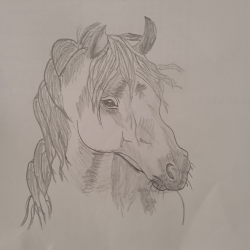

LITERATURE INCLUDES PLAYS, poems, novels, and short stories. It is writing that carries strong and lasting value through offering the reader important insights into the nature of human emotions. For example, the English playwright William Shakespeare (1564-1616) often based his plays on old or well-known stories, and because Shakespeare was a very skilled writer and had a great understanding of human nature, his plays still excite audiences of all nationalities hundreds of years after they were written. Literature can be powerful, as it can express the writer's thoughts, ideals, and beliefs. Authors, or writers, have often used literature to protest injustice in the world, make a social criticism, and influence the opinions of peoples or governments. For instance, in The Grapes of Wrath, American novelist John Steinbeck (1902-68) drew public attention to the suffering of homeless farmers fleeing from Oklahoma to California during the Great Depression of the 1930s.
PLOT
The collection of events that occur in a work of literature is called the plot. Gulliver's Travels tells the story of Lemuel Gulliver, a ship's surgeon. In the first part, Gulliver is shipwrecked in an imaginary land called Lilliput, where the people are only a few centimetres tall. In the second tale, he meets the giants of Brobdingnag In the third story, Gulliver visits various strange lands. Finally he is marooned among the Houyhnhnms - a race of horses that are wiser and more intelligent than their repulsive human servants, the Yahoos. Rejected by the Houyhnhnms, Gulliver returns to England, where he is no longer able to tolerate the company of other humans.
CHARACTERS
An essential part of most literature is the writer's description of the characters - the people who take part in the plot. A writer portrays a character's personality by describing how they react to events in the story. For example, Swift shows that Gulliver is a kindhearted man by describing how he entertains the tiny Lilliputian people: "I would sometimes lie down, and let five or six of them dance on my Hand. And at last the Boys and Girls would venture to come and play at Hide and Seek in my Hair."
THEME
Writers use their
plots and characters to explore key themes such as love, death, morality, and social or political issues. Gulliver's Travels seems just an adventure story, but the underlying theme is 18th-century England, where the Lilliputians and other nationalities represent different types of people with their good and bad qualities.


